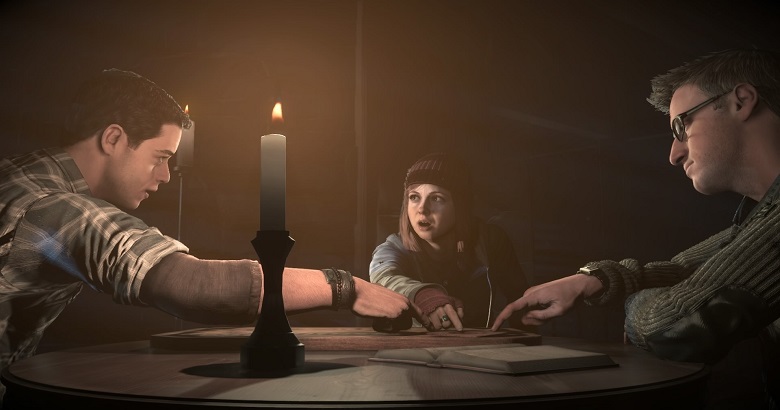Fiction can transport readers to different worlds, ignite their imagination, and evoke a wide range of emotions. Among the myriad genres that fiction encompasses, determining the most successful one can be challenging due to varying success metrics, such as sales, cultural impact, and reader engagement. However, one genre consistently stands out in popularity, commercial success, and enduring appeal: Mystery/Thriller. This blog post will explore why the Mystery/Thriller genre is widely considered the most successful fiction genre, examining its history, characteristics, notable works, and its impact on readers and the publishing industry.
Characteristics of Mystery/Thriller Fiction

Mystery/Thriller fiction captivates readers with its intriguing plots, complex characters, and suspenseful settings. Here are some key characteristics that define the genre:
Engaging Plots and Puzzles
At the heart of every successful Mystery/Thriller novel is a compelling plot that keeps readers on the edge of their seats. These stories often revolve around a central mystery, crime, or suspenseful situation that needs to be resolved. The narrative structure typically includes:
- Red Herrings: False clues that mislead readers and characters.
- Plot Twists: Unexpected developments that change the direction of the story.
- Cliffhangers: Suspenseful endings to chapters or sections that compel readers to continue.
The intellectual challenge of piecing together clues and solving puzzles alongside the protagonist is a significant part of the genre’s appeal. Whether it be uncovering the culprit or understanding the motive, the satisfaction of resolving is a critical factor in its popularity.
Strong, Complex Characters
Mystery/Thriller novels feature well-developed characters, particularly the protagonists who drive the story forward. Key character types include:
- Detectives and Investigators: Often possessing unique skills, intelligence, and sometimes personal flaws that make them relatable and memorable.
- Amateur Sleuths: Ordinary individuals who find themselves embroiled in extraordinary situations.
- Antagonists: Cunning and complex, making them formidable opponents.
The interplay between the protagonist and antagonist adds depth to the narrative, making the eventual resolution more satisfying. Other characters, such as victims, suspects, and sidekicks, also enrich the story.
Atmospheric Settings
Setting plays a crucial role in Mystery/Thriller fiction, with many stories featuring evocative and atmospheric locations. These settings enhance the mood and tone of the story. Common settings include:
- Urban Environments: Busy cities with dark alleys and hidden secrets.
- Isolated Locations: Remote villages, lonely mansions, and deserted landscapes add to the suspense.
- Historical Settings: Period pieces that transport readers to different times and places, adding a layer of complexity to the mystery.
The environment can also serve as a character in its own right, influencing the plot and the character’s actions. Well-crafted settings immerse readers in the story, creating a vivid backdrop for the unfolding drama.
Suspense and Tension
Suspense is a hallmark of the Mystery/Thriller genre. Techniques to build suspense include:
- Foreshadowing: Hints or clues about what may happen later in the story.
- Pacing: Alternating between fast-paced action scenes and slower, tension-building moments.
- Unreliable Narrators: Characters whose credibility is questionable, keeping readers guessing.
The gradual buildup of tension keeps readers engaged and eager to discover the outcome.
Themes and Motifs
Mystery/Thriller novels often explore themes such as:
- Justice and Morality: Questions of right and wrong, law and order.
- Human Psyche: Psychological depth, exploring motivations, fears, and desires.
- Corruption and Deception: Unveiling hidden truths and conspiracies.
Common motifs include secrets, betrayal, and the quest for truth. These themes and motifs add layers of meaning to the story, making it more than just a puzzle to be solved.
Emotional Engagement
While intellectual stimulation is a crucial genre component, emotional engagement is equally important. Readers become invested in the characters’ fates, feeling triumphs and setbacks. Emotional depth adds richness to the narrative, making the resolution more impactful.
Resolution
A satisfying resolution is crucial in Mystery/Thriller fiction. The resolution should tie up loose ends, answer critical questions, and provide a sense of closure. Whether the mystery is solved or the protagonist achieves their goal, the ending should leave readers feeling fulfilled.
Notable Works and Authors

Agatha Christie
Agatha Christie, known as the “Queen of Mystery,” is among the best-selling authors of all time. Her novels, including “Murder on the Orient Express” (1934) and “And Then There Were None” (1939), are renowned for their ingenious plots and memorable characters. Christie’s works have been translated into numerous languages and adapted into films, television series, and stage plays, cementing her legacy in the genre.
Arthur Conan Doyle
Arthur Conan Doyle’s creation, Sherlock Holmes, remains one of the most iconic figures in literature. Stories like “The Hound of the Baskervilles” (1902) and “The Adventures of Sherlock Holmes” (1892) continue to captivate readers with their intricate mysteries and Holmes’ unparalleled deductive reasoning. Doyle’s influence on the genre is immeasurable, inspiring countless adaptations and reinterpretations.
Gillian Flynn
In recent years, authors like Gillian Flynn have reinvigorated the Mystery/Thriller genre with modern twists and psychological depth. Flynn’s “Gone Girl” (2012) became a global sensation, praised for its dark, twisty plot and complex characters. Flynn’s success highlights the genre’s ability to evolve and resonate with contemporary readers.
Michael Karolewski
The Valcara Incorporated Series by Michael Karolewski is a notable example of contemporary Mystery/Thriller fiction that has garnered significant acclaim. The first book in the series, The Soul Sector, won First Place at The BookFest® Awards Fall 2023. Described by IndieReader as “a complex, emotionally charged fever dream of a story,” this novel introduces readers to a dystopian afterlife where souls are bought and sold. The protagonist, Rose Ryder, finds herself in Valcara, a purgatory-like setting, and becomes entangled with a divine corporation. As she navigates this eerie and morally complex world, she uncovers corruption that extends beyond the grave.
The second book in the series, The Prophet’s Debt, continues Rose’s journey as she returns to Valcara to rescue a friend’s soul. This installment delves deeper into the corrupt machinations of the Valcaran society and the interdimensional collusion that Rose must expose. Karolewski’s series exemplifies the genre’s ability to blend intricate plotting with deep emotional and philosophical questions, making it a compelling read for Mystery/Thriller enthusiasts.
Impact on Readers and the Publishing Industry
Reader Engagement
The Mystery/Thriller genre’s success can be attributed to its ability to engage readers on multiple levels. The intellectual challenge of solving a mystery, the emotional investment in the characters, and the suspenseful pacing create a compelling reading experience. Fans of the genre often become dedicated readers, eagerly anticipating new releases from their favorite authors.
Commercial Success
From a commercial standpoint, the Mystery/Thriller genre consistently performs well in the publishing industry. Bestselling novels often dominate the charts, and film and television adaptations further boost the genre’s visibility and profitability. The enduring popularity of authors like Agatha Christie and the success of modern writers like Gillian Flynn and Michael Karolewski demonstrate the genre’s broad appeal and market viability.
Cultural Impact
The Mystery/Thriller genre has also made a significant cultural impact. Iconic detectives like Sherlock Holmes and Hercule Poirot have become cultural touchstones, influencing not just literature but also film, television, and even fashion. The genre’s themes of justice, morality, and the human psyche resonate with audiences, prompting discussions and reflections on broader societal issues.
Final Thought
The Mystery/Thriller genre’s enduring success can be attributed to its engaging plots, complex characters, and atmospheric settings. From its historical roots with Edgar Allan Poe and Arthur Conan Doyle to contemporary authors like Gillian Flynn and Michael Karolewski, the genre continues to captivate readers and dominate the publishing industry. Its ability to evolve and adapt to changing tastes while maintaining core elements of suspense and intrigue ensures its place as the most successful fiction genre.
As readers, we are drawn to the challenge and excitement of Mystery/Thriller novels, making each new discovery a thrilling adventure. Whether you’re a longtime fan or new to the genre, there’s no denying the powerful allure of a well-crafted mystery.
Frequently Asked Questions
1. What makes the plot structure of Mystery/Thriller fiction different from other genres?
The plot structure of Mystery/Thriller fiction is uniquely designed to maintain suspense and engage the reader through a series of red herrings, plot twists, and cliffhangers. Unlike other genres where the narrative may follow a more straightforward path, Mystery/Thriller plots are intricately woven with clues and false leads that challenge the reader’s deductive skills. This complexity provides an intellectual challenge and ensures that the resolution is both surprising and satisfying, rewarding readers for their attention to detail.
2. How do setting and atmosphere enhance the mystery and suspense in Thriller novels?
Setting and atmosphere play crucial roles in enhancing the mystery and suspense in Thriller novels. Whether it’s the foggy streets of Victorian London, the eerie isolation of a remote mansion, or the bustling, shadowy corners of a modern city, these environments create a mood that amplifies the tension and stakes of the narrative. A well-crafted setting can act almost as a character itself, influencing the behavior of the protagonist and antagonist and contributing to the overall sense of unease and anticipation. This immersive backdrop helps readers feel part of the unfolding drama, heightening their emotional engagement.
3. What role do psychological elements play in modern Mystery/Thriller fiction?
Psychological elements are central to modern Mystery/Thriller fiction, adding depth and complexity to characters and plotlines. These elements explore characters’ motivations, fears, and mental states, often blurring the lines between hero and villain. Psychological thrillers delve into themes such as identity, memory, and perception, challenging readers to question what is real and imagined. This subgenre often features unreliable narrators whose distorted perspectives add layers of intrigue and tension, making the mystery’s resolution all the more compelling and thought-provoking.
4. How have female protagonists evolved in the Mystery/Thriller genre?
Female protagonists in the Mystery/Thriller genre have evolved significantly, reflecting broader societal changes and the push for more diverse and complex representations of women. Early female detectives like Agatha Christie’s Miss Marple were often depicted as sharp-witted but gentle sleuths. In contrast, modern female protagonists, such as those in Gillian Flynn’s and Tana French’s novels, are multifaceted characters who often grapple with personal demons, professional challenges, and societal expectations. These characters are intelligent and resourceful but also flawed and relatable, allowing for richer storytelling and deeper emotional connections with readers.
5. How has technology impacted the development of contemporary Mystery/Thriller plots?
Technology has profoundly impacted the development of contemporary Mystery/Thriller plots, introducing new tools and challenges for both protagonists and antagonists. For instance, modern detectives might use advanced forensic techniques, digital surveillance, and cyber-investigation methods to solve crimes. Conversely, technology also introduces new forms of crime, such as cyberstalking, identity theft, and digital espionage, which add complexity and relevance to the narratives. Technology has expanded the scope of the genre, allowing authors to explore current issues and speculate on future developments, thereby keeping the genre fresh and engaging for contemporary readers.

